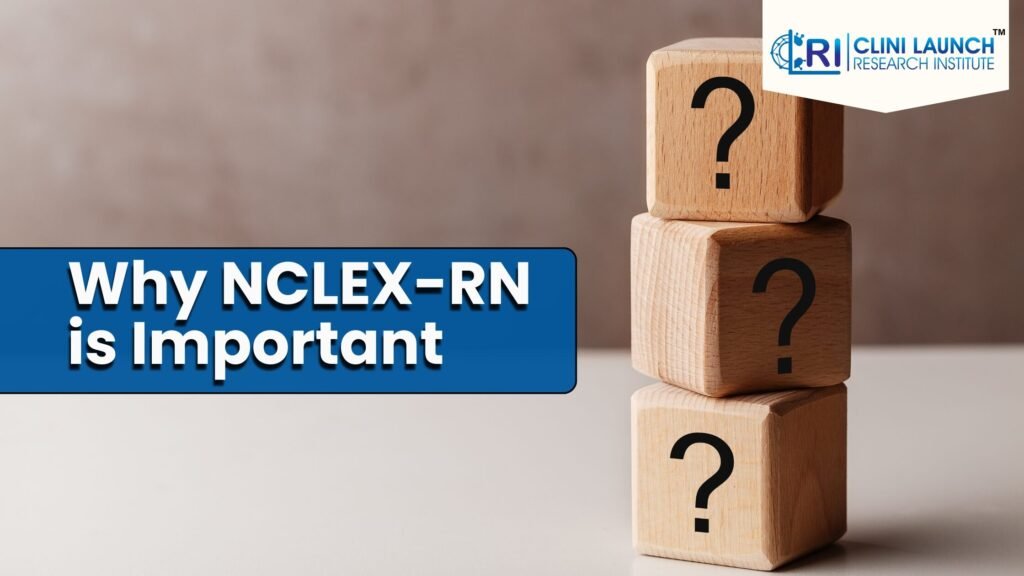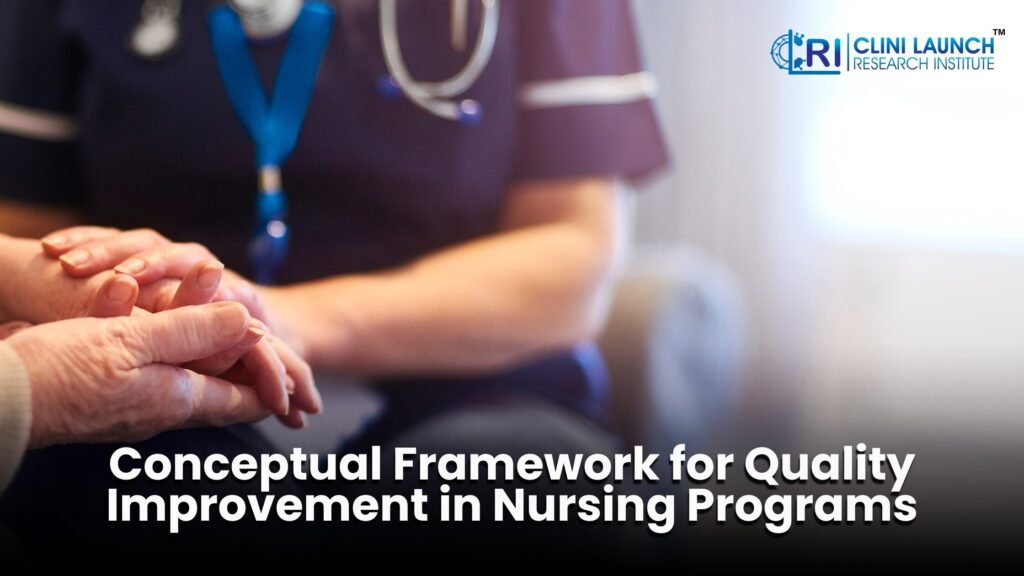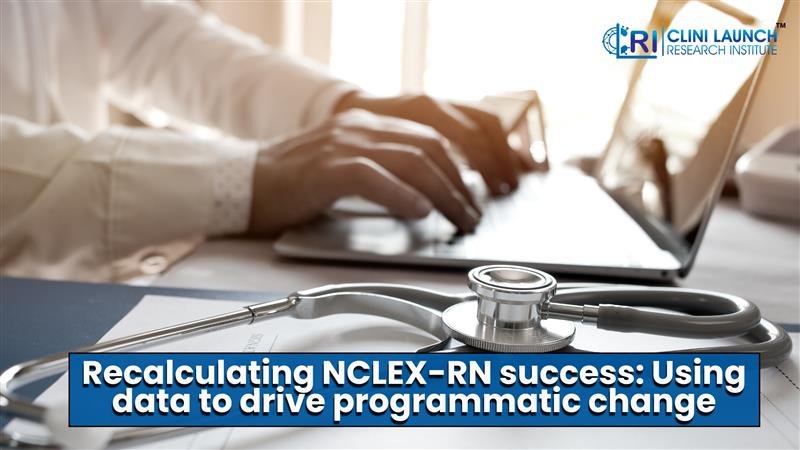Why NCLEX RN Success is Important?

Creative Designed by Md Aayan Ansari (Graphic Designer at CliniLaunch)
The NCLEX RN (National Council Licensure Examination for Registered Nurses) serves as a critical gateway for nursing graduates aiming to achieve licensure as registered nurses. It assesses a candidate’s ability to apply essential nursing knowledge and critical thinking skills necessary for safe and effective patient care. However, this exam’s complexity and rigorous standards make NCLEX RN success challenging, with many candidates struggling to meet the required benchmarks. You need to have a thorough understanding of the skills and knowledge which you can get by enrolling in a good nursing program.
Nursing programs near me and nationwide face the ongoing task of improving NCLEX-RN pass rates to ensure the competence of their graduates. This challenge has prompted a growing interest in using data-driven strategies to identify factors influencing student performance and to implement targeted improvements within nursing education. By examining historical data and performance trends, institutions can make informed decisions to refine their curricula, instructional methods, and support services, ultimately enhancing student preparedness and success on the NCLEX-RN exam.
Enroll for “NCLEX RN Training program”
Background of the NCLEX-RN Exam and Success rate
The NCLEX-RN exam is designed to assess the competencies essential for safe and effective entry-level nursing practice. Administered by the National Council of State Boards of Nursing (NCSBN), the exam uses a computerized adaptive testing (CAT) format to evaluate candidates across various domains, including safe care environments, health promotion, psychosocial integrity, and physiological integrity.
The NCLEX-RN success rate varies significantly across institutions, with national average pass rates typically ranging between 80-90%. As per recent review the success rate for year 2024 for first time test takers is 93% and repeat test takers is 53%. Higher success rates are often linked to robust curriculum, Comprehensive learning program, effective test preparation resources, and strong faculty or trainer support. Institutions with lower pass rates can benefit from data analysis to identify trends and implement targeted educational strategies.
Achieving success on the NCLEX-RN is not solely a measure of knowledge but also critical thinking, decision-making, and the ability to apply theoretical concepts in clinical practice. Therefore, nursing programs must continually evolve their curricula and teaching methodologies to align with the exam’s standards
Data Analysis of Successful Students
An evidence-based approach to improving NCLEX-RN success involves the analysis of data from past cohorts of nursing students. Key metrics for success includes:
- Academic performance (GPA, course grades)
- Clinical evaluation scores
- Standardized test results during the program
- Student engagement and participation in NCLEX preparation resources
The success patterns often reveal that students who consistently perform well across these metrics tend to have higher NCLEX-RN pass rates. Nursing programs near me have started employing predictive analytics to identify at-risk students early and provide targeted interventions.
Read our blog post: “Your Ultimate NCLEX Test guide”
Conceptual Framework for Quality Improvement in Nursing Programs

Creative Designed by Md Aayan Ansari (Graphic Designer at CliniLaunch)
To drive NCLEX-RN success, nursing programs can adopt a conceptual framework grounded in continuous quality improvement (CQI). The CQI model emphasizes:
- Data Collection: Ongoing collection of student performance metrics.
- Data Analysis: Identifying trends and gaps in student learning.
- Intervention Design: Developing tailored educational interventions such as remedial courses, simulation labs, and mentorship programs.
- Evaluation and Refinement: Regular assessment of intervention effectiveness with iterative refinements.
By leveraging this framework, nursing education institutions can implement evidence-based strategies that ensure students are better prepared for the NCLEX-RN.
Implications for Nursing Education
A data-driven approach to improving NCLEX-RN success has significant implications for nursing education. By leveraging data analysis, nursing schools can make evidence-based curriculum adjustments that better align with the competencies tested on the NCLEX-RN. Faculty development programs can be established to ensure instructors are equipped with the latest strategies for effective teaching and assessment.
Additionally, mentorship initiatives and peer support networks can be introduced to foster collaborative learning among students. Ensuring a culture of continuous improvement can help bridge gaps in theoretical knowledge and clinical application, ultimately enhancing overall student performance and preparedness for the exam.
Data-driven approach to NCLEX-RN success for nursing education:
- Curriculum Development: Insights from data analysis can inform curriculum adjustments, ensuring alignment with NCLEX content and competencies.
- Faculty Development: Providing expert faculty with training on best practices for preparing students for the NCLEX exam.
- Student Support Services: Introducing targeted support mechanisms like tutoring, test-taking strategies, practical problem solving classes and stress management workshops.
These initiatives can enhance overall program effectiveness and graduate success rates for future
Limitations and Future Scope for the Program

Creative Designed by Md Aayan Ansari (Graphic Designer at CliniLaunch)
While data-driven strategies show promise, certain limitations must be acknowledged:
- Data Quality: Incomplete or inconsistent data collection may impact findings.
- Individual Variability: Academic metrics may not fully capture student preparedness.
- Resource Constraints: Implementing quality improvement initiatives may require significant institutional resources.
Future efforts should explore:
- Advanced machine learning models for predictive analytics
- Expanded use of simulation-based learning tools
- Collaborative partnerships among nursing programs to share best practices.
Key Takeaway
Recalculating NCLEX-RN success through data-driven programmatic change is essential for ensuring nursing graduate’s readiness for licensure and safe clinical practice. Nursing institutions must focus on continuous data analysis, curriculum refinement, and faculty development to drive positive outcomes. By emphasizing evidence-based strategies, nursing programs can better prepare students for the challenges of the NCLEX-RN exam.
Ultimately, these efforts contribute to a stronger, more competent nursing workforce capable of delivering high-quality patient care across various healthcare settings. To dive into these promising career paths, you can visit CliniLaunch’s NCLEX-RN Training program.







A great way to improve NCLEX-RN success rates! Using data can help make better changes in nursing programs thanks for sharing.